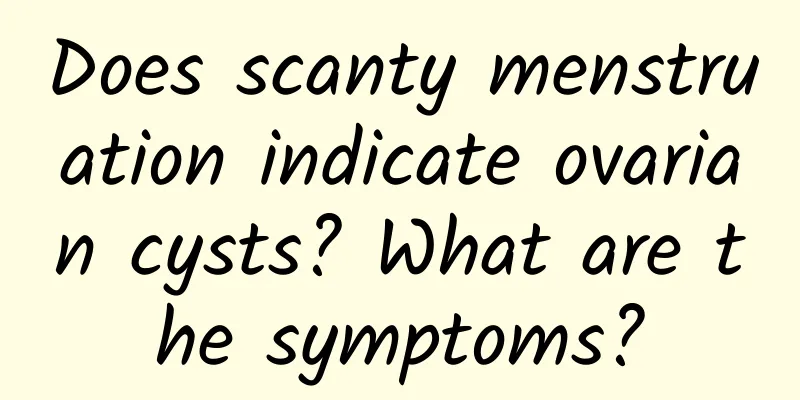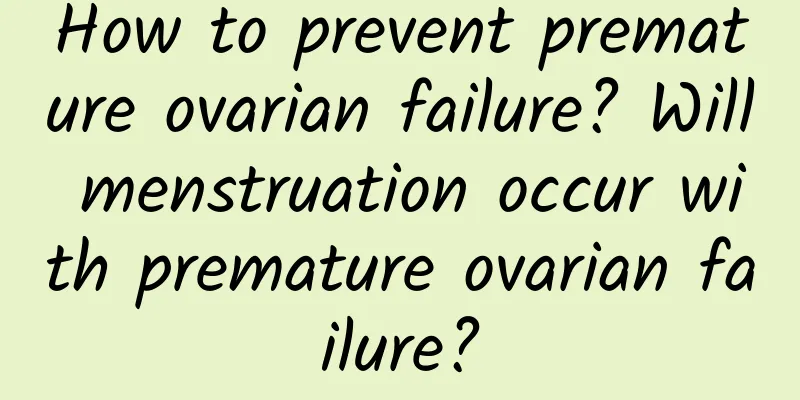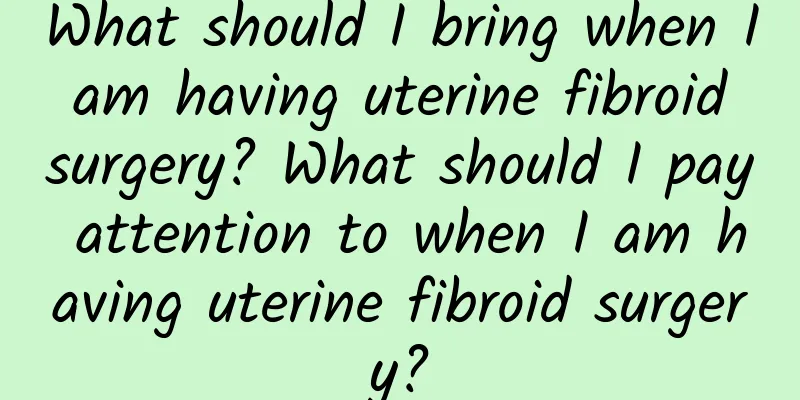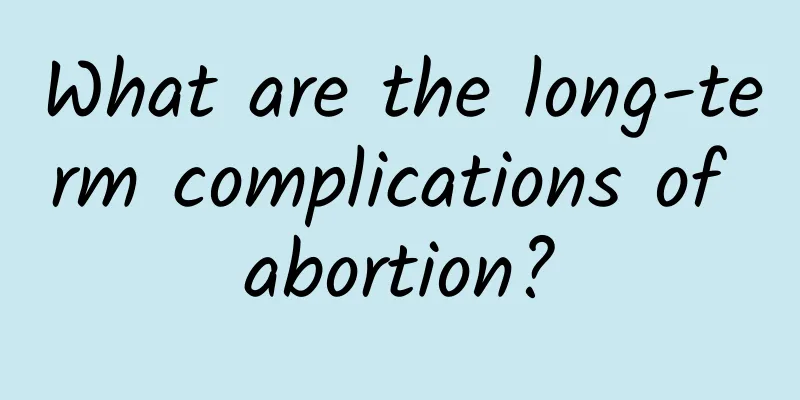Does scanty menstruation indicate ovarian cysts? What are the symptoms?

|
Ovarian cysts must not be treated with medication blindly, otherwise more complications may occur. So, are there ovarian cysts? What are the symptoms? Ovarian cysts can be physiological, i.e. normal cysts that disappear naturally with the changes in the menstrual cycle, or pathological, cysts that are formed by diseases. Physiological cysts do not require surgery, but pathological cysts often require surgery to confirm the diagnosis and appropriate treatment. For women of childbearing age, after the discovery of an ovarian cyst, the next step of treatment depends on the nature of the cyst. B-ultrasound results are very helpful for diagnosis. If the ultrasound shows that the cyst is anechoic and without separation, it can be observed for 3 months and the ultrasound examination can be repeated after 3 months. If the cyst persists, surgical treatment should be considered. Most cysts are pathological cysts and surgery should be performed to confirm the diagnosis. The main symptoms of patients with ovarian cysts are: 1. Abdominal pain: A small number of patients with ovarian cysts will experience abdominal pain. If not treated, the condition will become more and more serious and the abdominal pain will become more and more obvious. 2. Lower abdominal discomfort: Lower abdominal discomfort usually occurs in the early stages of ovarian cysts. 3. Compression symptoms: Some ovarian cysts may even cause breathing difficulties. This is because the tumor brings a sense of pressure to the patient. 4. Increased abdominal circumference and swollen abdomen: If you are careful, you will usually feel the abdomen getting bigger when you get dressed, and some people may experience bloating and discomfort. 5. Menstrual disorders: The occurrence of ovarian cysts can easily damage the normal ovarian tissue and affect menstrual disorders. Small menstrual flow is generally not a sign of ovarian cysts. Small menstrual flow is generally caused by low estrogen levels. Estrogen can stimulate the proliferation and thickening of the endometrium to prepare for conception. Emotional tension and environmental changes may cause temporary endocrine disorders, increase menstrual blood volume or reduce bleeding during menstruation. This situation will affect future pregnancy due to malnutrition. Heavy work tasks and a lot of activities require more energy and sufficient nutrition and calories. |
<<: How is vaginal candidiasis caused?
>>: What to do with irregular menstruation
Recommend
Which three kinds of exercise are chocolate cysts most afraid of?
Which three kinds of exercise are chocolate cysts...
How to treat female cervical erosion? Several treatment methods for female cervical erosion
Traditional Chinese medicine is one of the best w...
What are the treatments for threatened abortion?
What are the treatments for threatened miscarriag...
It’s hot, so I’m going to eat some? Drink these "fat-removing" teas to get rid of your fat belly
The weather is hot and I’m in a bad mood, so I ju...
Will women's dysmenorrhea gradually ease with age?
Nowadays, the causes of dysmenorrhea in women hav...
What causes blood clots during menstruation?
If a woman has more blood clots during her menstr...
Detailed introduction to some common care methods for vulvar leukoplakia
Vulvar leukoplakia is a common disease among wome...
Local treatment methods for vulvar leukoplakia
The cause of vulvar leukoplakia is still unclear....
Akemi Katsuki shares the secret of losing weight! 4 years of successful weight loss and no more weight gain
The impression you have of Akemi Katsuki is that ...
Will cervical erosion after pregnancy cause leucorrhea to turn brown?
Whether before or during pregnancy, you may find ...
Is bleeding from uterine fibroids dangerous?
Bleeding from uterine fibroids can indeed cause h...
What is the diagnosis of Bartholinitis?
What is the diagnosis basis of Bartholinitis? Bar...
What foods are beneficial for the recovery of vulvar leukoplakia?
Patients with vulvar leukoplakia can often take t...
Is cervical hypertrophy cervicitis?
Cervical hypertrophy is a manifestation of cervic...
How to cure endometrial tuberculosis
The appearance of endometrial tuberculosis brings...









